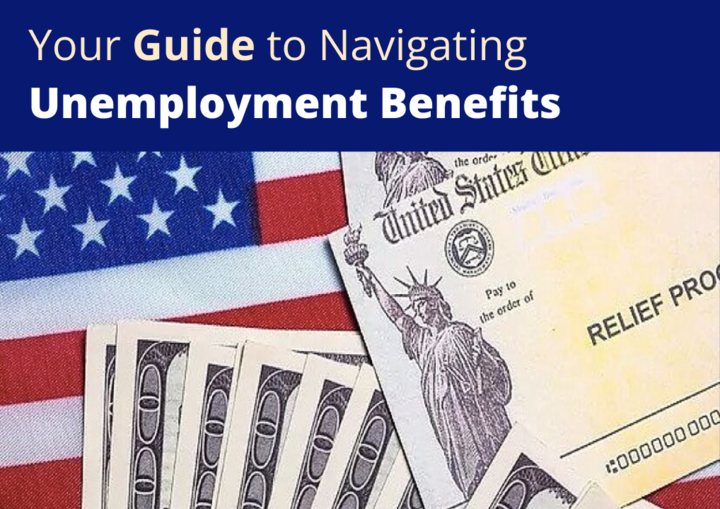The notion that making only minimum payments on credit card balances can keep individuals out of debt is a pervasive misconception. In reality, this practice often leads to a cycle of debt that is difficult to escape. When consumers opt for minimum payments, they are typically only covering the interest accrued on their outstanding balance, which means that the principal amount remains largely untouched.
For example, if someone has a credit card balance of $5,000 with an interest rate of 18%, making a minimum payment of $100 per month would result in only a small reduction of the principal. Over time, this can lead to a situation where the individual feels trapped in a never-ending cycle of payments, as the majority of their payment goes toward interest rather than reducing the actual debt. Moreover, relying on minimum payments can have long-term financial repercussions.
Credit card companies often structure their payment plans to encourage this behavior, as it maximizes their profit from interest charges. This can lead to a false sense of security for consumers who believe they are managing their debt effectively. In many cases, individuals may find themselves accumulating more debt while trying to maintain their minimum payments, leading to a precarious financial situation.
The reality is that paying only the minimum can significantly extend the time it takes to pay off a balance, resulting in thousands of dollars lost to interest over the life of the debt.
Key Takeaways
- Paying only the minimum on credit cards keeps you in debt longer and costs more in interest
- Closing a credit card can temporarily lower your credit score, but the impact is usually minimal and short-lived
- Carrying a balance on your credit card does not improve your credit score and only costs you more in interest
- Having many credit cards can actually improve your credit score by increasing your available credit and lowering your credit utilization ratio
- Credit cards can be beneficial for building credit, earning rewards, and providing consumer protections
- Debit cards may have less fraud protection and expose your bank account to potential theft
- Credit cards offer better fraud protection and benefits like purchase protection and travel insurance
- Credit card rewards can be valuable if used wisely, but it’s important to consider annual fees and interest rates
The Myth of “Closing a Credit Card Hurts Your Credit Score”
Another common belief is that closing a credit card account will automatically damage one’s credit score. While it is true that closing a credit card can have implications for your credit score, the effects are not as straightforward as many believe. Credit scores are calculated based on several factors, including payment history, credit utilization ratio, length of credit history, and types of credit accounts.
When a credit card is closed, it can impact the credit utilization ratio if the card had a significant limit compared to other cards. However, if the card was rarely used or had a high balance relative to its limit, closing it might actually improve one’s credit utilization ratio. Additionally, the length of credit history plays a crucial role in determining credit scores.
If an individual closes an older account that has been in good standing for many years, it could negatively affect their score due to the reduced average age of accounts.
Conversely, if the closed account was newer or had a history of missed payments, closing it could potentially improve one’s score in the long run.
It’s essential for consumers to evaluate their entire credit profile before making decisions about closing accounts, as the impact can vary significantly based on individual circumstances.
The Myth of “Carrying a Balance Helps Your Credit Score”
The belief that carrying a balance on a credit card is beneficial for one’s credit score is another widespread myth that can lead consumers astray. In fact, credit scoring models do not reward individuals for carrying debt; rather, they assess how much available credit is being utilized. The ideal scenario is to maintain a low credit utilization ratio—generally recommended to be below 30%—which indicates responsible use of credit.
Carrying a balance can lead to higher utilization rates and may signal to lenders that an individual is over-reliant on credit. Furthermore, carrying a balance incurs interest charges that can quickly accumulate, leading to financial strain. For instance, if someone has a $1,000 balance on a card with a 20% interest rate and only makes minimum payments, they could end up paying hundreds of dollars in interest over time without significantly reducing their principal balance.
This not only affects their financial health but also creates a misleading picture of their creditworthiness. Paying off balances in full each month not only avoids interest charges but also demonstrates responsible credit management, which is more favorable in the eyes of lenders.
The Myth of “Having Many Credit Cards Will Hurt Your Credit Score”
Many people believe that having multiple credit cards will negatively impact their credit score. While it is true that applying for new credit can result in hard inquiries that may temporarily lower your score, having several credit cards can actually be beneficial if managed wisely. A diverse mix of credit accounts can enhance your credit profile and demonstrate your ability to handle different types of credit responsibly.
Moreover, having multiple cards can help improve your overall credit utilization ratio by increasing your total available credit. However, it is crucial to manage these accounts effectively. If an individual opens several new accounts and accumulates high balances across them, this could indeed harm their score due to increased utilization and missed payments.
Conversely, if someone maintains low balances and pays on time across multiple cards, they may see an improvement in their score over time. The key lies in responsible management rather than simply the number of cards held.
The Myth of “Credit Cards Are Always Bad for Your Financial Health”
The perception that credit cards are inherently detrimental to financial health overlooks the potential benefits they can offer when used responsibly. Credit cards provide consumers with flexibility and convenience in managing their finances. They can serve as an effective budgeting tool when individuals track their spending and pay off balances in full each month.
Additionally, many credit cards offer rewards programs that provide cash back or points for purchases made, which can be advantageous for savvy consumers. Moreover, using credit cards responsibly can help build and improve one’s credit score over time. A strong credit score is essential for securing favorable loan terms and interest rates on mortgages or car loans.
By demonstrating responsible use of credit through timely payments and low utilization rates, individuals can enhance their financial standing and open doors to better financial opportunities. Thus, while there are risks associated with credit card use, they can also be powerful tools for financial management when approached with discipline and awareness.
The Myth of “Debit Cards Are Safer Than Credit Cards”
Vulnerabilities of Debit Cards
If a debit card is compromised or used fraudulently, the funds are taken directly from the consumer’s bank account, which can lead to immediate financial hardship until the issue is resolved. This can be a significant risk, especially for those who rely heavily on their debit cards for daily transactions.
Credit Card Protections
In contrast, credit cards often provide stronger consumer protections against fraud and unauthorized transactions. Under the Fair Credit Billing Act (FCBA), consumers are typically only liable for up to $50 in fraudulent charges if they report them promptly. Many credit card companies go above and beyond this requirement by offering zero liability policies for unauthorized transactions.
A More Secure Payment Option
This means that using a credit card can provide an added layer of security against fraud that debit cards do not offer. Therefore, while both payment methods have their pros and cons, labeling debit cards as universally safer overlooks significant risks associated with direct access to bank funds.
The Myth of “Using Cash Is Better Than Using Credit Cards”
The idea that using cash is always better than using credit cards is another oversimplification that fails to consider the nuances of personal finance management. While cash transactions can help individuals stick to a budget by limiting spending to available funds, they also lack many benefits associated with using credit cards. For example, cash does not offer rewards or cashback incentives that many credit cards provide for purchases made.
This means that consumers who exclusively use cash may miss out on opportunities to earn rewards on everyday spending. Additionally, using cash does not contribute to building or improving one’s credit score. Establishing a solid credit history is essential for future financial endeavors such as obtaining loans or mortgages at favorable rates.
Credit cards allow consumers to demonstrate responsible borrowing behavior through timely payments and low utilization rates—factors that are crucial for maintaining a healthy credit profile. Therefore, while cash may help some individuals manage their spending effectively, it does not offer the same advantages as responsible credit card use.
The Myth of “Credit Card Rewards Are Always Worth It”
The allure of credit card rewards programs often leads consumers to believe that these incentives are universally beneficial and worth pursuing at all costs. However, this perspective overlooks several critical factors that can diminish the value of rewards programs. Many rewards cards come with annual fees that can offset any potential benefits gained from rewards earned through spending.
For instance, if a card offers 2% cash back but charges an annual fee of $95, consumers must spend $4,750 annually just to break even on rewards earned. Moreover, some rewards programs have complex structures with limitations on how points or cash back can be redeemed. Consumers may find themselves enticed by promotional offers but later discover that redeeming rewards requires navigating complicated terms or restrictions that diminish their value.
Additionally, overspending in pursuit of rewards can lead to accumulating debt and incurring interest charges that far outweigh any benefits gained from rewards programs. Therefore, while rewards programs can be advantageous when used wisely and strategically, they are not inherently worth pursuing without careful consideration of associated costs and potential pitfalls.
FAQs
What are some common credit card myths?
Some common credit card myths include the belief that carrying a balance helps your credit score, that closing a credit card will improve your credit score, and that having a lot of credit cards will hurt your credit score.
Does carrying a balance on your credit card help your credit score?
No, carrying a balance on your credit card does not help your credit score. In fact, it can actually hurt your credit score by increasing your credit utilization ratio.
Will closing a credit card improve your credit score?
Closing a credit card can actually hurt your credit score, as it can decrease your available credit and increase your credit utilization ratio. It can also shorten the length of your credit history, which can also impact your credit score.
Does having a lot of credit cards hurt your credit score?
Having a lot of credit cards does not necessarily hurt your credit score. It’s more about how you manage those credit cards and whether you are able to make on-time payments and keep your credit utilization ratio low.
Is it true that you need to carry a balance to build credit?
No, you do not need to carry a balance to build credit. Making on-time payments and keeping your credit utilization ratio low are more important factors in building and maintaining good credit.







